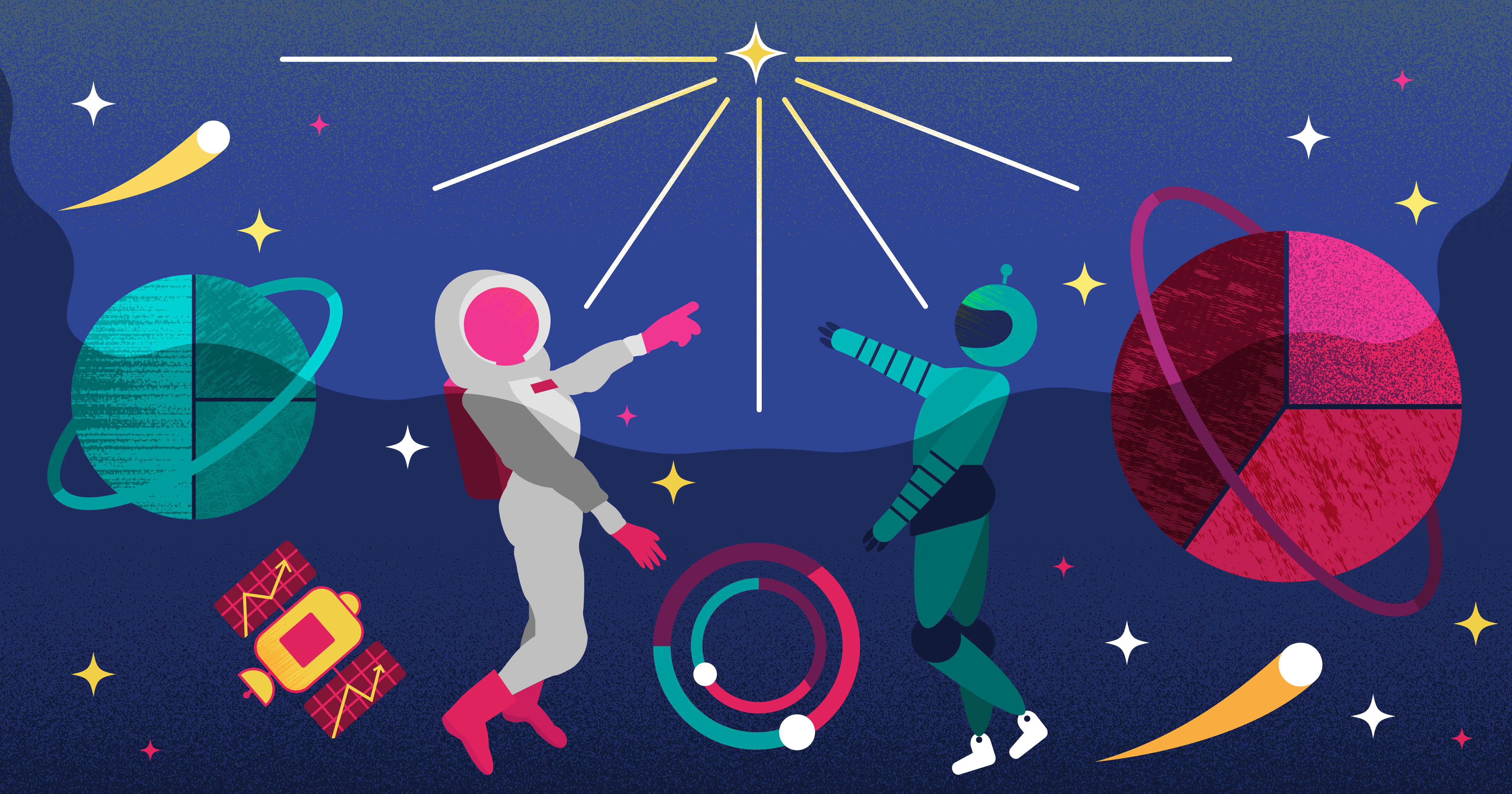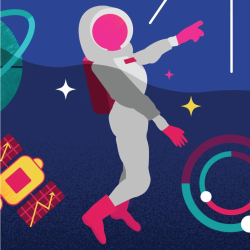AI Explorer Program Pilots Workplace of the Future

Artificial Intelligence (AI) and machine learning have the power to reshape the way we use data to make decisions at CMS. But fully leveraging the potential of that power to automate manual processes, remove operational inefficiencies, and enhance health outcomes depends on the humans who apply these technologies.
In order to gain knowledge about how AI can best be implemented at CMS, OIT started an innovative new pilot program that encourages experimentation by CMS employees.
The AI Explorer Program invites CMS employees to submit their best AI application ideas for testing and potential development. Two entries have already received funding from the first quarterly call for submissions last fall. Up to 16 pilots are expected to be funded between now and the end of 2023.
We asked Xingjia Wu, a Data Scientist who manages the AI Explorer Program, to discuss why the initiative is so important to CMS, how it is changing our workplace, and helping the federal government’s efforts to advance AI nationwide.
Q: What is the AI Explorer Program all about?
A: AI technologies are more advanced in the private sector than in most government agencies. To accelerate AI research and applications throughout the federal government, the White House recently launched the National Artificial Intelligence Initiative (ai.gov).
Our AI Explorer Program aligns with this effort and provides an opportunity for all CMS employees to test whether their AI ideas will be applicable within CMS. The program will also promote AI knowledge sharing through success stories and lessons learned so that everyone knows what AI can do for CMS. Ultimately, this will help us adopt AI into our work within CMS.
Q: How will the application of AI technology benefit CMS?
A: We see AI as an emerging technology that should have a wider impact throughout CMS, and not just limited by a few projects. AI could provide insights from data, help us build solutions, and reduce labor-intensive manual processes in our daily work. This program is really an idea incubator for OIT employees.
Q: How far along is CMS in implementing this project?
A: We’re still in the early stages of this two-year initiative. We’re starting to talk about AI and raising awareness of what it is, but we don’t yet know how much AI augmentation can help us reduce some of our manual labor costs and support decision-making. The application of AI is still limited within CMS.
Q: How does the application process work?
A: The AI Explorer Program is only open to federal employees, not the public or contractors. Applicants are required to submit a brief proposal. Submissions are screened, and those that meet our criteria are categorized into two categories:
1) Discovery for further information evaluation, or
2) Awarding Backlog for selection by executive leadership.
Two submissions from the Awarding Backlog, as selected by executive leadership, will receive funding every quarter. Submissions that are not chosen will remain in the Awarding Backlog and receive higher priorities for funding during the next round. Submissions in the Discovery category will have a chance to move into the Awarding Backlog after evaluation.
We are looking to fund two projects each quarter and up to 16 projects over the course of the program. Each awardee will receive $250,000 in funding to test their hypothesis/AI idea. We expect this will take roughly three to six months to complete.
Q: What criteria are being used to evaluate funded entries?
A: We are looking for three things. First is the business value that the pilot delivers. We want something that will eventually have a great impact on CMS. Second, the proposal must be AI-related and make excellent use of AI technology. Third is how feasible the proposal is, and can it be applied and implemented.
Q: What are you looking to learn from the pilots?
A: We’re looking to answer what kind of infrastructure is needed to develop their AI-related applications, what kind of technologies are they missing, and what needs to be purchased for this to be deployed.
Overall, we want to encourage adopting AI and improving AI readiness within CMS to build a foundation for more AI projects. Ultimately, we’re looking to amass a body of knowledge from as many people across CMS as possible to deliver value back into CMS. We also want to create a learning environment around a complex set of tech tools across CMS and position OIT as a better partner.
Q: How many pilots have been completed?
A: We just finished the first quarterly submissions process and received 16 applicants from six different components within CMS. It was a tough selection for us due to the high quality of all the submissions. As a result, we selected two pilots as awardees that will receive funding. We are meeting now with the two awardees to review logistics and support their needs.
Q: What did the two selected entries propose?
A: The first, submitted by the Office of Enterprise Data and Analytics, proposes using AI or machine learning models to predict opioid use disorder (OUD)-related hospitalizations based on fee-for-service Medicare claims and Part D drug event data. This pilot could help identify opioid overdose risks among patients.
The second proposal came from the Center for Clinical Standards and Quality. The team wants to create a machine learning model to predict patient readmissions. Studies have shown that CMS spends over $17 billion annually on avoidable hospital readmissions – those where an action could have been taken to avoid a costly readmission. This pilot could help us identify patients with high risks and prevent readmissions through interventions and deploying preventive care models.
Q: When does the following quarterly submission process start?
A: The third round of submissions will open on April 4 and close on May 6. Selected entries will be announced no later than eight weeks after entries close.
Q: Where can employees get more information about the AI Explorer Project?
A: For more information on the program and the application process, contact AI-Pilots@cms.hhs.gov

